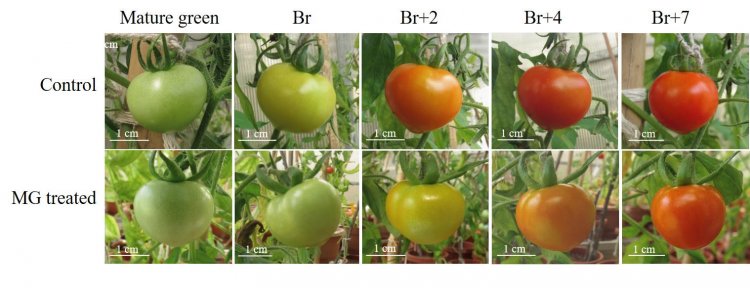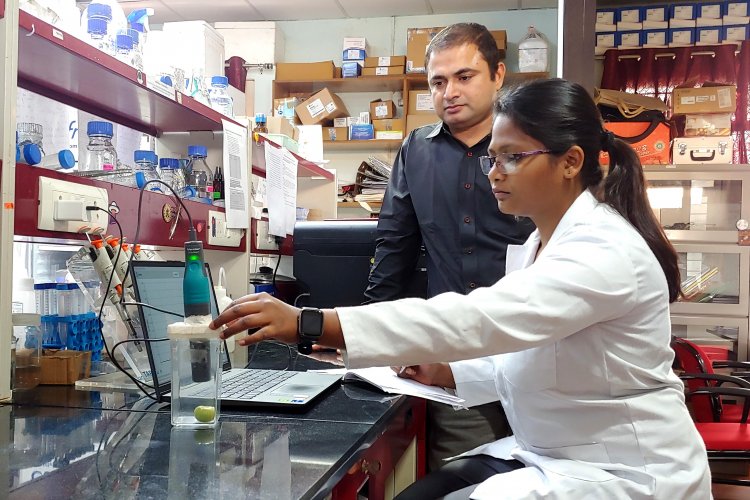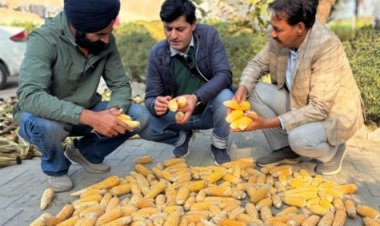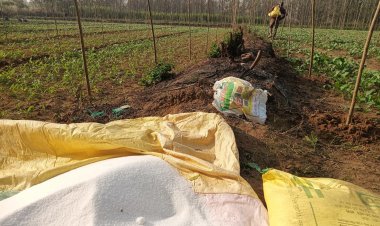Mechanism to control ripening of fruits
An understanding of the mechanism to control the ripening process (Improved knowledge of such molecular regulatory events) is crucial to develop effective bio-technological strategies for improving ripening traits such as fruit flavor, pigment accumulation, and fruit shelf-life, the scientists explain.

Indian scientists have unravelled a mechanism that can help control the process of ripening in fruits, especially tomato. This is possible by understanding the mechanism and preventing ethylene biosynthesis, according to a team of researchers from the University of Delhi (DU) and University of Hyderabad (UoH).
The role of ethylene in inducing ripening of fleshy fruits is well known. An understanding of the mechanism to control the ripening process (Improved knowledge of such molecular regulatory events) is crucial to develop effective bio-technological strategies for improving ripening traits such as fruit flavor, pigment accumulation, and fruit shelf-life, the scientists explain.
Varieties with prolonged fruit shelf-life can minimise the post-harvest loss of fruits and vegetables during transport and storage. Such superior varieties will also benefit farmers for their return on investment (ROI) and consumers for fresh and quality agri-products.
Due to the essential nature of ethylene in ripening, its bio-synthesis and signaling pathways are well studied in fleshy fruits such as tomatoes. However, a complete understanding of the genetic regulatory mechanisms controlling ethylene-induced ripening program remains to be fully understood. This is where the researchers have concentrated on their work.
The new research study
In the collaborative research, a team of plant scientists jointly led by Dr. Rahul Kumar, University of Hyderabad (UoH), and Prof. Arun K. Sharma, University of Delhi, has identified a conserved mechanism that controls tomato fruit ripening by inhibiting ethylene biosynthesis.

The team found that several non-ripening mutants which do not ripe normally accumulate high levels of Methylglyoxal (MG), a toxic compound produced as a byproduct of several cellular processes, such as respiration and photosynthesis.
This MG is known to interfere with protein function by non-enzymatically glycating them in both animals and plants. The main MG detoxification enzyme system was found to be compromised in the non-ripening tomato mutants.
The team then developed both over-expression and gene-silenced lines of one of the ripening-associate glyoxalase enzymes (SlGLYI4) and showed that silencing of this gene led to drastic MG overaccumulation at the ripening-stages.
This inhibited fruit ripening in the silenced lines and these fruits phenocopied the ripening phenotypes of non-ripening mutants. Further investigations showed that MG plausibly glycates and inhibits key enzymes such as methionine synthase (MS) and S-adenosyl methionine synthase (SAMS) of ethylene biosynthesis pathway, thereby indirectly affecting fruit pigmentation and cell metabolism.
MG over accumulation in several non-ripening or inhibited-ripening tomato mutant fruits suggests the tightly regulated MG detoxification process is crucial for normal ripening program. Overall, the study reported a novel mechanism regulating fruit ripening program and projected SlGLYI4 and its homologs, in other fruit species as potential candidates, to improve ripening traits in fleshy fruits.
Due to the novelty and significance of the research findings, this work entitled " Elevated methylglyoxal levels inhibit tomato fruit ripening by preventing ethylene biosynthesis" (DOI: https://doi.org/10.1093/plphys/kiad142) is recently published in Plant Physiology, one of the top most scientific journal published by the American Society of Plant Biologists, USA.
The team members in the research are: Priya Gambhir, Vijendra Singh, Utkarsh Raghuvanshi, Adwaita Parida, Shweta Sharma and Peof Arun K Sharma from Delhi University. Prof Sudhir K. Sopory, International Centre for Genetic Engineering and Biotechnology, New Delhi and Stuti Kujur and Dr. Rahul Kumar, UoH.
(M Somasekhar is an independent journalist who specializes in Science & Technology, Agriculture, Business and start-ups based out of Hyderabad.)



 Join the RuralVoice whatsapp group
Join the RuralVoice whatsapp group









































